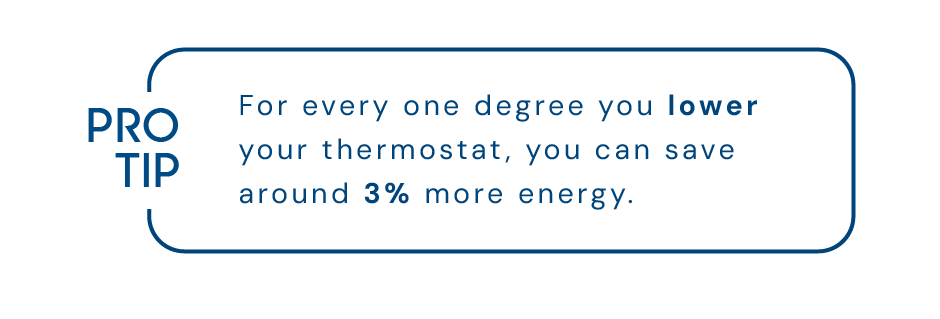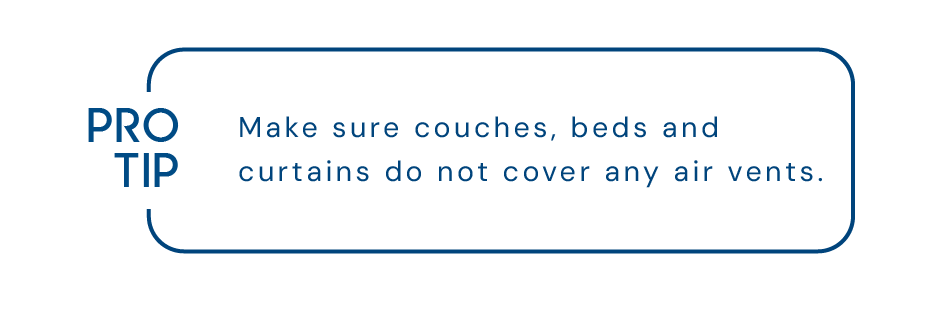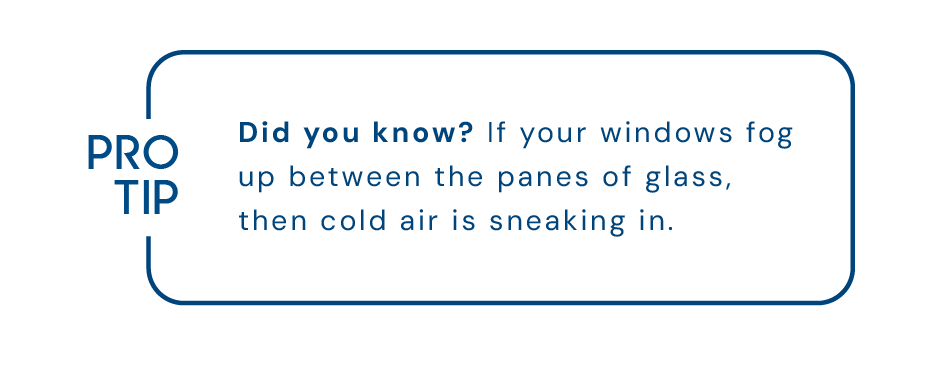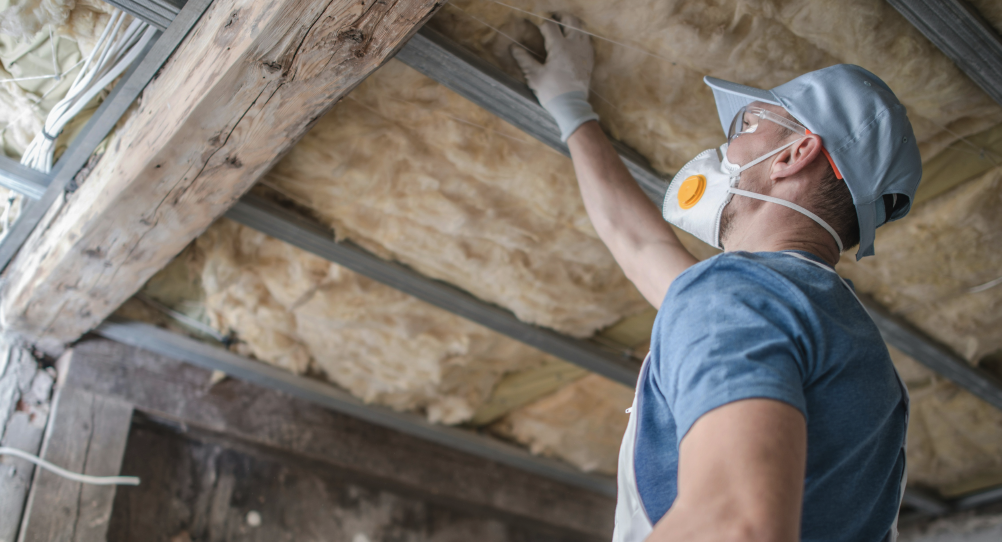7 free and easy fixes to keep your home warmer for less this winter

Cold weather can do a number on your winter energy bills, especially when temperatures dip into the teens or lower. But it doesn’t have to. There are some simple —and free — steps you can take to help manage your energy bill during the coldest months of the year. Plus, you can access free home energy education and tips year round when you visit the TVA EnergyRight® website. We’re here to help you stay warm, save energy, and keep your energy bills under control.
1. Set your thermostat to 68°F or lower.
Skip the next battle in your home’s thermostat war by getting everyone on board with using 68° F as a baseline. Here’s why that matters: Heating and cooling your home makes up about 31% of your total electricity use. So, the more attention you focus on improving your heating system’s energy efficiency, the more energy and money you’ll save. If you leave the house for eight or more hours, move that dial back even further. It could save you upwards of 10% annually. As an added bonus, you might just also enjoy better sleep. Studies show that sleeping in cooler temperatures can improve sleep quality.

2. Leave air vents open and unobstructed.
Pop quiz! True or false: Closing vents in unused rooms saves money on heating. Well, if you guessed true, you’re not alone. But the answer is actually false! This is one of the most common home energy myths we hear. While it seems like shutting off the flow of heat to a room that isn’t being used would save energy and redistribute the heat to other rooms, it actually doesn’t. Here’s what could happen instead:
Damage to your HVAC system
Yikes. Not only can too many closed registers (HVAC lingo for air vents) cause damage to your compressor, but pressure can start to build in your air ducts, which can turn tiny leaks into a big problem.
Lost energy efficiency
The size of your HVAC system is designed to provide the right amount of heating and cooling to your home. So when air vents get blocked off, your system is still going to produce the same amount of air, only now it doesn’t have as many places to flow. That creates pressure and will cause your system to work harder, meaning more electricity use, and you guessed it, a higher utility bill.
Mold and mildew growth
Closed registers can cause condensation to form in the air duct, and that moisture can become the perfect breeding ground for mold and mildew.

3. Take advantage of the sun.
You know who really loves to help people save energy? Mother Nature herself! On those bright, sunny winter days, pull back the curtains, open the blinds and let the sun pour in. Enjoy the extra light and warmth with no increase to your energy bill. At night, close everything up again for a little added protection from the cold.

4. Weatherstrip doors and windows, DIY style.
A little gap here, a little gap there—if you think those drafty spots around doors and windows aren’t that big of a deal, think again. Even just a 1/8-inch gap around the entryway of a door is equivalent to drilling a five-inch hole through the outside wall! That’s a ton of space for cold air to slip in and your heat (and money) to slip out.
While caulk and weatherstripping may set you back about $20, you can also try these no-cost tips in a pinch:
- Plastic grocery bags. Flatten out a plastic garbage bag, then roll it up longways. You may need several depending on the window or draft. Open the window and fill any gaps where insulation is missing or damaged with the grocery bag rolls. Then, shut the window.
- Cotton swabs. A rattling window is not only annoying, but it’s usually a sign of a draft. Take an everyday cotton swab and fold it up slightly at the edges, forming a wide u-shape. Place the cotton swab u-shape side up in any gaps where the window meets the base.
- Old sheets or towels. Use old sheets, towels or blankets to block drafts at window sills. Roll them up longways for a quick and easy doorstop.

5. Avoid using emergency heat unless it’s a true emergency.
Emergency heat is only for emergencies! It is not for daily use. The only time you should use emergency heat is if your primary heat pump and auxiliary heat (the heat that automatically turns on if the heat pump malfunctions) go out. Emergency heat, which has to be manually turned on and off, costs significantly more than your everyday heat and will drive up your energy bill.
6. Reverse the direction of your ceiling fan.
Yes, ceiling fans can help you feel warmer! Toggle the little switch on your ceiling fans so that they rotate clockwise. This will drive warm air hovering around the ceiling back down into the room and onto your skin. (Remember, ceiling fans cool and warm people, not rooms.) Just don’t forget to set it back to rotate counterclockwise for the spring and summer!
7. Bundle up.
This one is a no-brainer, but it’s so easy to forget! Grab a hoodie, some comfy socks and your favorite blanket, and you can avoid having to crank up the heat to take off the chill. This is the perfect time to slide into your slippers so you can slide into energy savings.
Use home energy rebates when no-cost fixes don’t cut it.
Let’s face it, if your HVAC system goes belly up in the middle of an extreme winter weather event, no amount of no-cost fixes are really going to cut it. But investing in a new heating system, replacing faulty ductwork, or beefing up your home’s insulation isn’t always in the budget. TVA EnergyRight offers a range of money-saving rebates for common home energy upgrades so that improving your home’s energy efficiency can be more affordable. Plus, all rebate-eligible home energy upgrades are completed by a TVA-vetted contractor from our Quality Contractor Network, ensuring your work is backed by TVA quality standards. We’re here to help you make winter weather energy choices that keep you warm
Start exploring rebates today.




